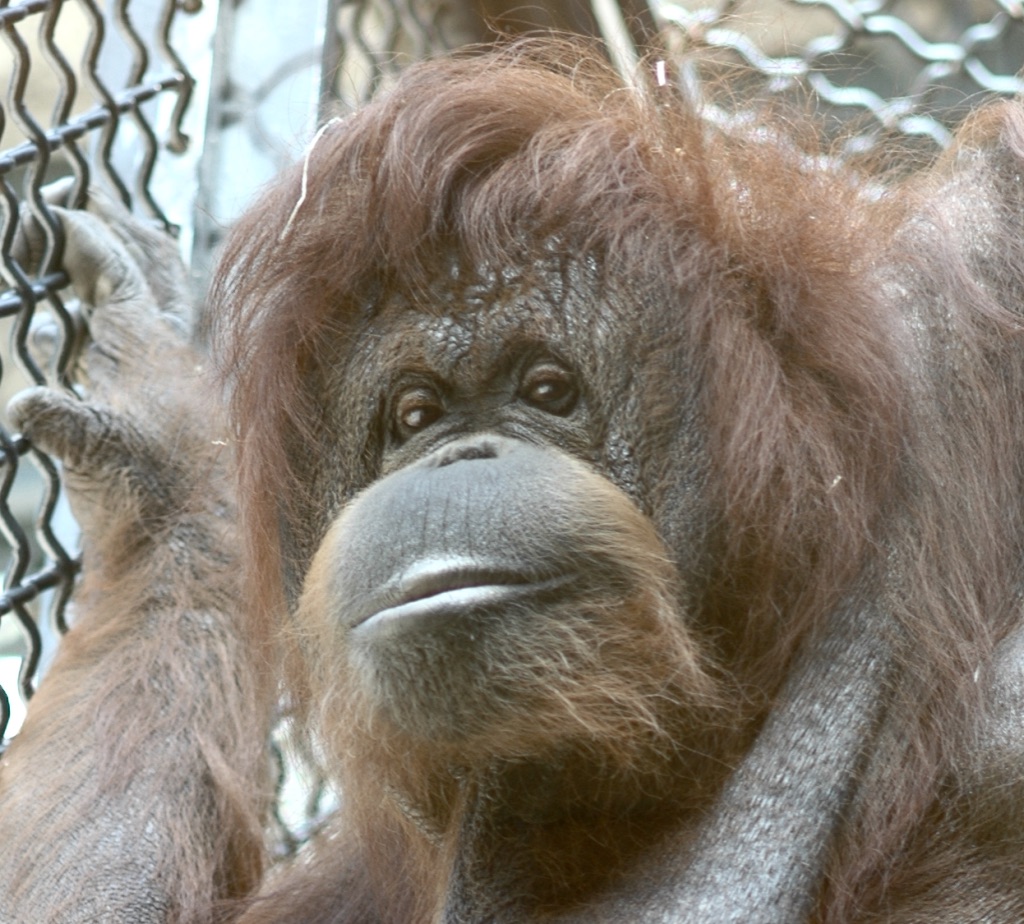The French documentarian talks about his new film « Nénette » and the paradox of captivity.
Adam Woodward
Little White Lies
- February 3, 2011
In his 30 plus year career, French documentarian Nicolas Philibert has filmed everything from the hidden treasures of the Louvre; to the disquieting tranquility of the La Borde psychiatric clinic; to an isolated schoolhouse in Auvergne, rural France, in the BAFTA nominated To Be and to Have. His latest subject is one of France’s most cherished celebrities, an unlikely star who resides in Paris’ famous Jardin des Plantes. LWLies caught up with Philibert recently to discuss the making of « Nénette » and the delicate balance between man and nature.
LWLies: Nénette is something of a departure from your previous work, how did the film come about?
Philibert : The idea came very spontaneously when visiting the menagerie. Often a film project needs to grow slowly out of something in your mind, but this one came very quickly to me. The idea of separating the images and sounds came on the very first day.
Was that an important decision to make so early on?
Yes because the film is a face-to-face, it’s a mirror and because of that we don’t need to see any humans. In my opinion the message is much stronger if we don’t see people, only Nénette and the others here and there. It’s a film about the projection itself, because when we see these animals we can’t help projecting our own feelings and thoughts. What is looking? What is voyeurism? We pay to watch animals behind glass in their cages, like when we go to a peep show. It’s an interesting facet of human nature to explore.
What drew you to Nénette specifically?
I think I identified strongly with her because she is so famous – a celebrity in France – and there is something about orangutans that is so remarkable. They are very human. We don’t associate ourselves with chickens or rabbits or spiders but orangutans are very close to us, they are our cousins, we share 97 per cent of our DNA with them. They seem to imitate us a lot, especially in captivity where they see humans from 9am to 6pm everyday for years on end.
How did you shoot the film?
It was 10 days, one hour a day. Not that much, really. We had about 10 hours of images and more sound recordings at the end of the shoot. I didn’t shoot scenes or set up shots, I just left the camera rolling. And there’s very little synchronisation between the images and sound, apart from a few of the interviews with the keepers. Otherwise I just left a small recorder next to the glass and captured people’s conversations and comments. To be honest, when editing I started from sounds and built up the images on top, it was very important to get the sound sequenced first, to build up a narrative.
What do you make of the relationship between Nénette and her keepers?
It’s funny because they know her habits so well and they are all very fond of her, but maybe they see her as more than an animal. I don’t know. It’s easy to fall in love with her.
How much do you feel you bonded with Nénette while you were filming?
She’s a star, you know, she’s been filmed for years and there’s always people taking photos of her everyday on phones and cameras. But as I came back after each day I noticed that she could recognise me. After three days she knew who I was. I learned a lot of things about her; after just a few hours I could distinguish between Nénette and the other three orangutans by her movements and subtle characteristics.
What works so well about the film is that fact that you keep your own thoughts private, but what do you think about captivity and what it means today?
Well the film says enough without me having to share my thoughts, but if you want to know… I think that when we are kids we love zoos and the magic of seeing exotic animals, but when we are adults we don’t like them because as we get older it becomes a synonym of jail and something very negative. But zoos are important now; they’ve changed what they stand for because in the wild these animals are not safe. We are quickly achieving to exterminate these animals in the wild, and the irony is, of course, that they are now in less danger behind glass. It is said that within 15-20 years there won’t be any more orangutans in Borneo and Sumatra. We are destroying the forest and there’s no way for it to recover in time to save this species. That is so sad to me but it’s really too late to do anything now so most likely these animals will shortly only exist in captivity.
